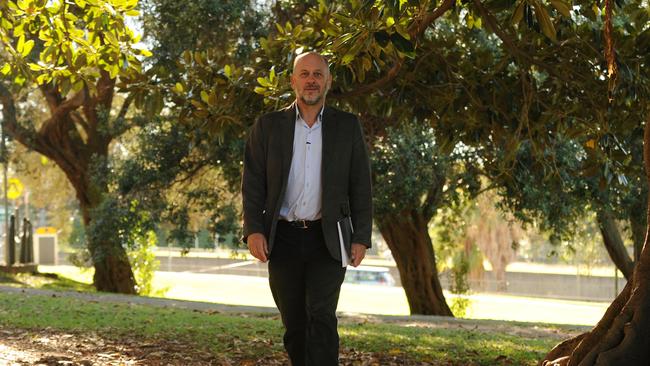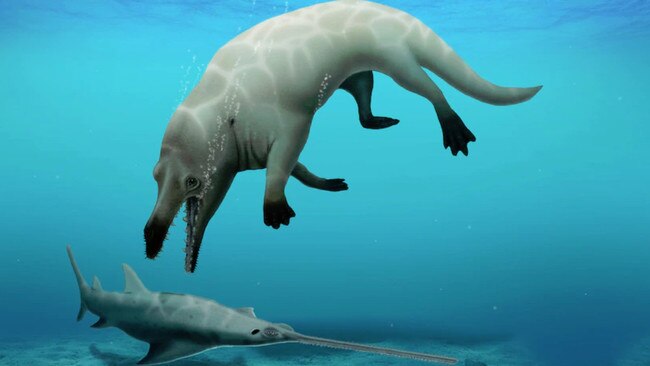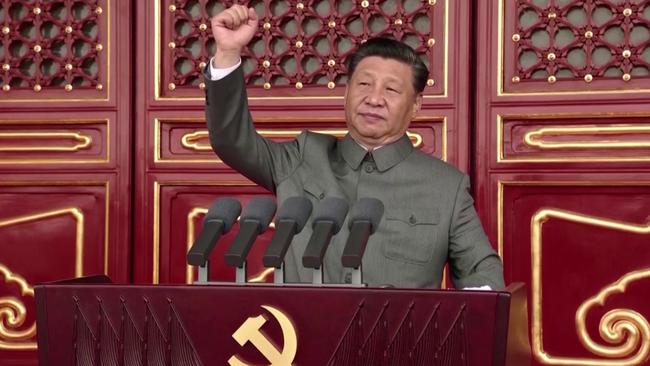
He summarised this reasoning in what he calls a “three prongs” approach. “Stemming the spread” of the virus Flannery likens to reducing CO2 emissions. Likewise, he says the bolstering of hospital emergency departments to cater for the pandemic will need to be replicated for vast numbers of climate casualty patients. And lastly, climate change requires the equivalent of the “vaccine stage”, which as the Sydney Morning Herald reported, “would take the form of restorative measures such as replanting old-growth forests”.
While they are it, they could also replace the old-growth forests felled to print Flannery’s many books. Also, I thought vaccines are a preventive, not a restorative, measure. But what would I know about pandemics and climate change? After all, I’m not a mammologist.
It is not the first time Flannery has used Covid as a means of talking about climate change, or should I say talking about himself in the context of climate change. As he modestly observed in June during his address to the Australian Museum, “I was made Australian of the Year in 2007 in part because of my contribution for raising awareness to the climate issue,” and “You know I’ve been doing this for a long time (as) I wrote in my book ‘The Climate Cure’ (Solving the Climate Emergency in the Era of COVID-19)”.
I thought of him only last weekend when reading an article by The Times about the recent discovery of a 43-million-year-old whale fossil in Egypt. Named Phiomicetus anubis after an Egyptian god of death whose jackal-like head it resembles, it had four legs and was capable of walking on land as well as hunting in water.

Being a palaeontologist, Flannery would actually know a thing or two about this fossil. I know kangaroos and tree rats are more his forte, but nonetheless he could tell you a lot about this formidable creature just from its skeleton. It would be a novelty, not to mention a welcome change, to hear him talk about a respected discipline of which he has ample qualifications and experience.
Expertise over ego
As for Flannery’s idea that we can apply the lessons of Covid to climate change, it should not be dismissed out of hand. To begin with, it is essential that those advising governments of how to respond to both phenomena are motivated by expertise and not ego. Furthermore, the forecasts of these officials must be strictly based on evidence. Playing to an audience is the hallmark of a performer, not the objective scientist. Flannery would surely agree with that.
Covid has also taught us that declarations such as “the science is settled” are nonsense.

As far as the World Health Organisation was concerned, the science was settled in January last year when it tweeted “Chinese authorities have found no clear evidence of human-to-human transmission of … coronavirus”. And the science was settled when the following month WHO chief Tedros Adhanom Ghebreyesus criticised countries that had banned flights from China, saying there was no need for measures that “unnecessarily interfere with international travel and trade”. When asked about the virus’s spread internationally, he said it was “minimal and slow”.
The pandemic has also reinforced the fact the Chinese government is synonymous with duplicity and obfuscation, particularly in frustrating attempts to discover the origins of the virus. The ruling party will do anything to avoid being held accountable to the international community. We should also assume the same regarding its pledge to help mitigate the effects of climate change.
China’s empty coal promises
In April, during his online address to US President Joe Biden’s climate summit, China’s leader Xi Jinping promised to “strictly control coal-fired power generation projects”. So how is that going? As the BBC reported last month “China’s carbon emissions are vast and growing, dwarfing those of other countries”. At present, the country is responsible for around 30 per cent of the world’s CO2 emissions. Ludicrously, despite its blatant expansionism, it is classified as a developing county for the purposes of the Paris Agreement.
If Xi really intends to “phase down” coal use by 2026, then he is going about it in an unusual way. The BBC reported last month China is building coal-fired power stations at more than 60 locations across the country. Many of those locations have more than one plant, each designed to have a lifespan of 30 to 40 years. Yet according to Flannery, writing in The Guardian in 2014, “China is also acting to limit coal consumption in an effort to tackle air pollution and climate change”.

Who else knew drawing analogies between Covid and climate change could be this useful? For most of this year we have seen outbursts verging on unhinged about the AstraZeneca vaccine, despite it being overwhelmingly safe in most cases. In June we witnessed the unedifying spectacle of Queensland chief health officer Jeannette Young trashing it. “I do not want under 40s to get AstraZeneca … wouldn’t it be terrible that our first 18-year-old in Queensland who dies, related to this pandemic, died because of the vaccine,” she said petulantly. It took her until August to defer to ATAGI and concede that those under 60 should consider receiving AstraZeneca if Pfizer were not available to them.

Now compare this obtuseness to that which we see in discussing alternative energies that could considerably lower Australia’s CO2 output. To many, the answer is renewables, despite them being expensive, intermittent, unreliable, and requiring a backup power system. With an obstinacy bordering on obsession, we refuse to countenance the commissioning of nuclear reactors, even though they could continuously deliver reliable and emissions-free power. Flannery himself once supported this. “Over the next two decades, Australians could use nuclear power to replace all our coal-fired power plants,” he wrote for The Age in 2006, only to pretend a year later it had never been on his wish list.
The bureaucratic lessons of Covid-19
In the event climate change requires urgent measures, Australians can apply the lessons of Covid by ensuring they do not allow unnecessary governmental incursions of civil liberties that we saw and continue to see in the pandemic. This has been aggravated by the emergence of a powerful bureaucratic elite in the last two years that is the antithesis of democracy. We should never accept the excuse that the forecast of extreme weather conditions warrants rule by technocrats.
Flannery’s proposal that we use Covid as a model for responding to climate change has proved most useful, and he deserves to be applauded. I have one further suggestion in this context, and that concerns the many inaccurate and alarmist predictions made by so-called experts during the pandemic. They should admit their recklessness and opportunism, as should their counterparts in the climate debate. As for the latter, that begins with the good professor himself, who could write a magnum opus based entirely on his mea culpas.







Did you know the pandemic is a model for how we should respond to climate change? That’s according to Tim Flannery, the former chief commissioner of the now defunct Climate Commission, and this was the theme of his presentation for Queensland University of Technology’s Sustainability Week last Wednesday.